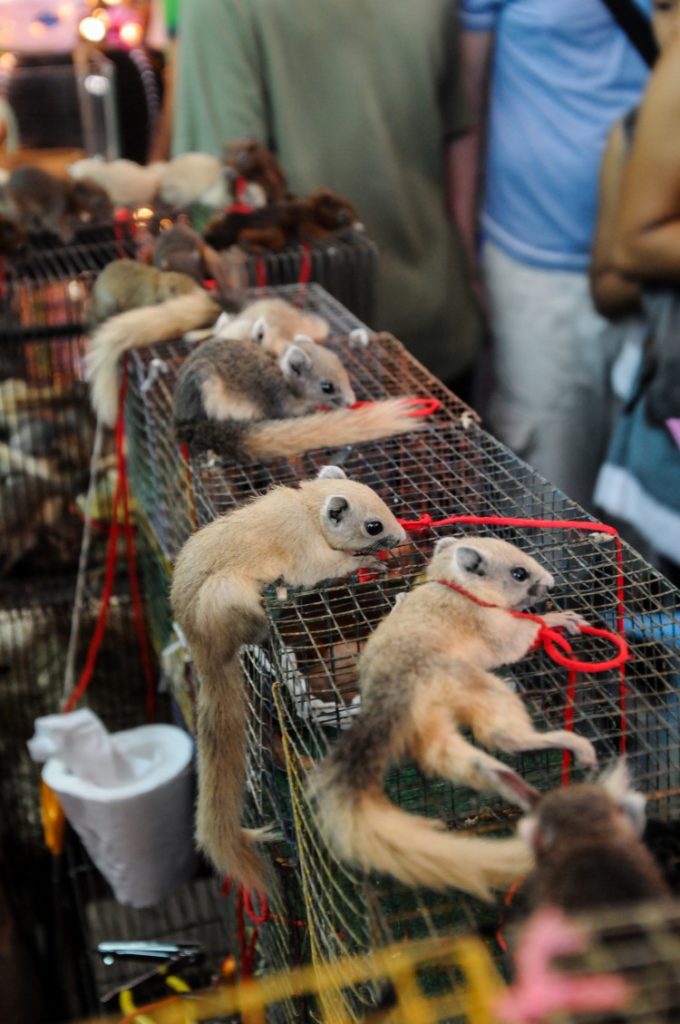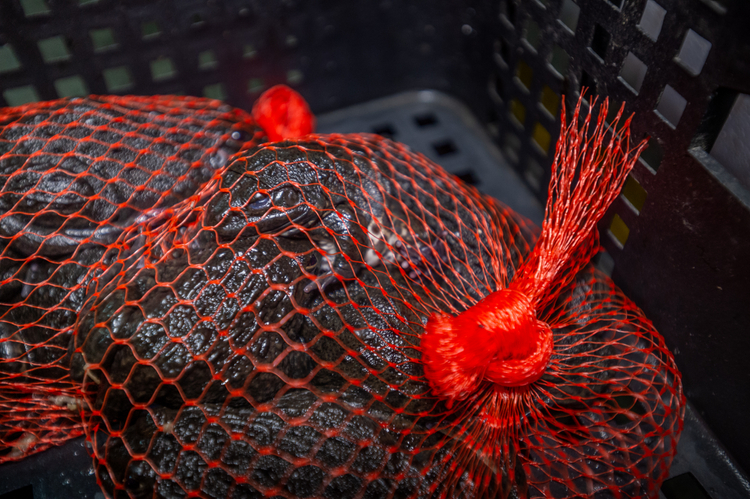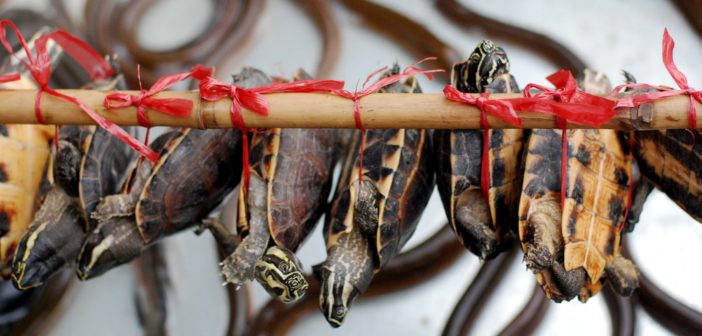United Nations Migratory Species Ambassador Ian Redmond OBE has raised the alarm that the COVID-19 pandemic could jump species again to threaten already endangered species such as apes, other primates and tigers.
The news that the Bronx Zoo has confirmed that tigers can contract COVID-19 has raised the frightening prospect that the SARS-CoV 2 virus could enter populations of wild tigers.
“A few weeks ago, I was watching monkeys in Periyar National Park, India, steal ice creams and snacks from unwary tourists,” said Redmond.
“This was just before the number of COVID-19 cases took off, but if one of those tourists had been unknowingly shedding the virus, it could have quickly spread through the troop. Bonnet macaques are not an endangered species but the danger to the wider ecosystem arises because a sick monkey will more easily fall prey to tigers and other predators. Even if it just sickens and dies of the illness, the virus could spread to scavengers.”

There are many routes of transmission from humans to other species, wherever wild animals have access to fomites (virus-laden objects) or food that infected humans have discarded or actively fed to wildlife.
Redmond warned, “We do not know which species this virus can affect. Concern over accidental transmission to our closest relatives, gorillas, chimpanzees, bonobos and orangutans, has led all the ape-watching sites in Africa and Southeast Asia to suspend tourist visits during the pandemic. In addition, the minimum distance rangers and vets can approach has been increased from 7 to 10 meters when monitoring them.”
These measures are in place to protect the endangered apes – but the knock-on effect to the wider ecosystem is equally important when an infected animal dies in the wild. The fact that tigers can fall sick should raise alarm bells because it proves this novel virus does not just cause illness in primates, but in other mammals too. The range of species that could be affected may be unknown, but it would be wise to practice the equivalent of social distancing from all wildlife if there is a risk of contagion. This also raises the question of pets – though no cases have yet been recorded of COVID-19 being transmitted from dogs or cats to humans.
The United Nations’ biodiversity chief has called for a global ban on wildlife markets – such as the one in Wuhan, China, believed to be the starting point of the novel coronavirus outbreak – to prevent future pandemics.
Elizabeth Maruma Mrema, the acting executive secretary of the UN Convention on Biological Diversity, said countries should move to prevent future pandemics by banning “wet markets” that sell live and dead animals for human consumption, but cautioned against unintended consequences.
China has issued a temporary ban on wildlife markets where animals such as civets, live wolf pups and pangolins are kept alive in small cages while on sale, often in filthy conditions where they incubate diseases that can then spill into human populations. Many scientists have urged Beijing to make the ban permanent.
Using the examples of Ebola in west-central Africa and the Nipah virus in east Asia, Mrema said there were clear links between the destruction of nature and new human illnesses, but cautioned against a reactionary approach to the ongoing COVID-19 pandemic.

“It would be good to ban the live animal markets as China and some other countries have done,” she says.
“Unless we get alternatives for these communities, there might be a danger of further opening up illegal trade in wild animals, which currently is already leading us to the brink of extinction for some species.
“We need to look at how we balance that and really close the hole of illegal trade in the future.”
As the coronavirus has spread around the world, there has been increased focus on how humanity’s destruction of nature creates conditions for new zoonotic illness to spread.
In February, delegates from more than 140 countries met in Rome to respond for the first time to a draft 20-point agreement to halt and reverse biodiversity loss, including proposals to protect almost a third of the world’s oceans and land and reduce pollution from plastic waste and excess nutrients by 50%.
A major summit to sign the agreement in October was scheduled in the Chinese city of Kunming, but has been postponed because of the coronavirus outbreak.
Featured image: live turtles and snakes for sale at a market. Image credit Mor, CC BY-SA 2.0.





